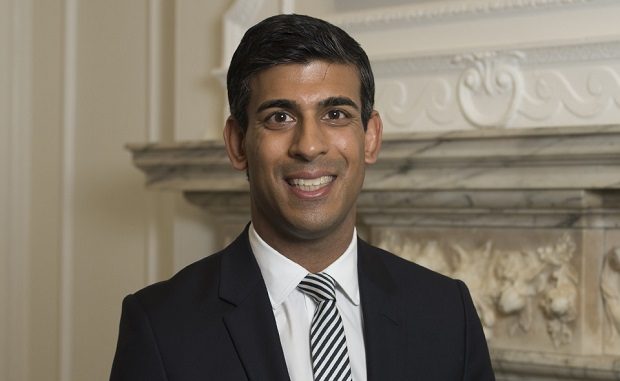
The government has announced a new package of financial support to help in the cost of living struggle.
Chancellor Rishi Sunak presented the cost of living package to Parliament today (May 26) with measures meaning eight million of the most vulnerable households will get £1,200 of one-off support in total this year, with all domestic electricity customers receiving at least £400.
The significant intervention includes a new, one-off £650 payment to low-income households on Universal Credit, Tax Credits, Pension Credit and legacy benefits, with separate one-off payments of £300 to pensioner households and £150 to individuals receiving disability benefits – groups who are most vulnerable to rising prices.
Rishi Sunak also announced that the energy bills discount due to come in from October is being doubled from £200 to £400, while the requirement to pay it back will be scrapped. This means households will receive a £400 discount on their energy bills from October.
The new Cost of Living Support package will mean that almost all of the eight million most vulnerable households will receive at least £1,200 of extra support this year, including the £150 council tax rebate.
Mr Sunak also announced a £500 million increase for the Household Support Fund, delivered by Local Authorities, extending it from October until March 2023. This brings the total Household Support Fund to £1.5 billion.
To help pay for the extra support – which takes the total direct government cost of living support to £37 billion – the Chancellor said a new temporary 25% Energy Profits Levy would be introduced for oil and gas companies, reflecting their extraordinary profits. At the same time, in order to increase the incentive to invest. the new levy will include a generous new 80% investment allowance.
Surging commodity prices, driven in part by Russia’s war on Ukraine, has resulted in the oil and gas sector making extraordinary profits. Ministers say they want to see the sector reinvest these profits in oil and gas extraction in the UK.
This is why the Energy Profits Levy has an investment allowance built in.The new Levy will be charged on oil and gas company profits at a rate of 25% and is expected to raise around £5 billion in its first 12 months, which will go towards easing the burden on families. It will be temporary, and if oil and gas prices return to historically more normal levels, will be phased out.
The new Investment Allowance incentivises companies to invest through saving them 91p for every £1 they invest. This nearly doubles the tax relief available and means the more a company invests, the less tax they will pay.
The Levy does not apply to the electricity generation sector – where extraordinary profits are also being made due to the impact that rising gas prices have on the price paid for electricity in the UK market.
Energy payment
Households will get £400 of support with their energy bills as a grant, which will not be recovered through higher bills in future years. Energy suppliers will deliver this support to households with a domestic electricity meter over six months from October. Direct debit and credit customers will have the money credited to their account, while customers with pre-payment meters will have the money applied to their meter or paid via a voucher.
Benefit payment
Households on means tested benefits will receive a payment of £650 this year, made in two instalments. This includes all households receiving the following benefits:
- Universal Credit
- Income-based Jobseekers Allowance
- Income-related Employment and Support Allowance
- Income Support
- Working Tax Credit
- Child Tax Credit
- Pension Credit
DWP will make the payment in two lump sums – the first from July, the second in the autumn. Payments from HMRC for those on tax credits only will follow shortly after each to avoid duplicate payments.This payment will be tax-free, will not count towards the benefit cap, and will not have any impact on existing benefit awards.
Pensioner payment
Pensioner households will receive an extra £300 this year to help them cover the rising cost of energy this winter.
This additional one-off payment will go to pensioner households across the UK who receive the Winter Fuel Payment and will be paid on top of any other one-off support a pensioner household is entitled to, for example where they are on pension credit or receive disability benefits. Eligible households currently receive between £200 – £300.
The Winter Fuel Payment (including the extra Pensioner Cost of Living Payment) is not taxable and does not affect eligibility for other benefits.
All pensioner households will get the one-off Pensioner Cost of Living Payment as a top-up to their annual Winter Fuel Payment in November/December. For most pensioner households, this will be paid by direct debit.
People will be eligible for this payment if they are over State Pension age (aged 66 or above) between 19 – 25 September 2022.
Disability payment
People across the UK who receive the following disability benefits will receive a one-off payment of £150 in September: For the many disability benefit recipients who receive means tested benefits, this £150 will come on top of the £650 they will receive separately.
- Disability Living Allowance
- Personal Independence Payment
- Attendance Allowance
- Scottish Disability Benefits
- Armed Forces Independence Payment
- Constant Attendance Allowance
- War Pension Mobility Supplement

